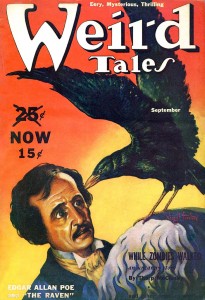 First I’ll list the main winners, as many just want to cut to the chase, as it were.
First I’ll list the main winners, as many just want to cut to the chase, as it were.
Best Novel–Steve Hamilton–The Lock Artist
Best First Novel–Bruce De Silva–Rogue Island
Best Original Paperback–Robert Goddard–Long Time Coming
Grand Master–Sara Paretsky-For her lifetime of work in the crime fiction field
So, what are the Edgars? Edgar is short for the recognized father of American mystery fiction, Edgar A. Poe, and is given in recognition of the best work within the field each year by the Mystery Writers of America. OK, but who are the MWA? Here I will quote from their site, because they explain themselves the best:
‘Mystery Writers of America is the leading association for professional crime writers in the United States. Members of MWA include most major writers of crime fiction and non-fiction, as well as screenwriters, dramatists, editors, publishers, and other professionals in the field. We welcome everyone who is interested in mysteries and crime writing to join MWA.’
Not all crime fiction writers belong to this group. As with any large body, some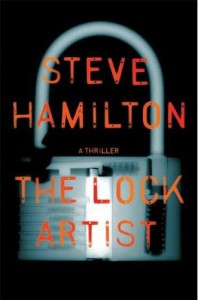 are n0t interested in participating, or have issues with MWA’s platform, or don’t want to pay the yearly dues! However, any mystery author is eligible for nomination for an Edgar, whether a member or not. Is there a decided slant towards those who are members? I have no way of knowing, no one would, unless they could see and read the entire list of members. Two authors I know nominated were not members. One confided in me that there was no way he would win, because he hadn’t joined their ‘little club.’ And he didn’t. The reasons could be myriad-besides his non-membership.
are n0t interested in participating, or have issues with MWA’s platform, or don’t want to pay the yearly dues! However, any mystery author is eligible for nomination for an Edgar, whether a member or not. Is there a decided slant towards those who are members? I have no way of knowing, no one would, unless they could see and read the entire list of members. Two authors I know nominated were not members. One confided in me that there was no way he would win, because he hadn’t joined their ‘little club.’ And he didn’t. The reasons could be myriad-besides his non-membership.
How can any 5 books out of the hundreds published each year be singled out for this honor? Here’s what the website says about eligiblilty:
- The work must be published for the first time in the United States in 2011. Previously self-published works are ineligible, even if later (edited and) re-published by an approved publisher. Only a work with a copyright date of 2011 will be eligible for consideration in 2011 (with the following exception; see the note below). A self-published book (whether it is in print, in electronic format or offered for free on a blog or a website) that is republished by an Approved Publisher is a reprint, not a new work, and while it would qualify a writer for Active Status membership, it does not qualify for Edgar Award consideration.
- Foreign books may have an earlier copyright but the year of consideration must be the year of its first publication in the United States.
If you notice, there is a strict stipulation in regard to self pubs. They are NOT eligible. Period. The MWA has a list of approved publishers and a very strong list of what does and does not constitute a legitimate publisher. And one of those rules are the books must have been sold from a ‘brick and mortar’ store.
Here are the first rules for an author being considered for membership in the MWA and consequently, which publishers are approved for the Edgar process.
- During the preceding year, the publisher must have paid a minimum of $1,000 to at least five authors with no financial or ownership interest in the company. Payment must be in monies, not in barter for advertising or copies of books.
- The initial print run by the publisher for a book-length work of fiction or nonfiction must be at least 500 copies and must be widely available in brick-and-mortar stores (not “special order” titles). In other words, print-on-demand publishers and Internet-only publishers do NOT qualify.
- The publisher must have been in business for at least two years since publication of the first book by a person with no financial or ownership interest in the company. (Exception: a new imprint by an established, approved publisher.)
- The publisher, within the past five years, may not have charged a fee to consider, read, submit, or comment on manuscripts; nor may the publisher, or any of the executives or editors under its employ, have offered authors self-publishing services, literary representation, paid editorial services, or paid promotional services.
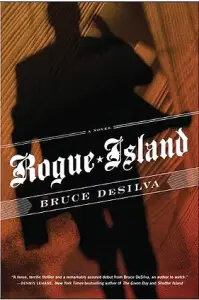 How are they nominated? This process is detailed and precise, so if I make any errors, someone correct me. For best novel, best first novel, etc., with the exception of the Mary Higgins Clark award, books can be submitted by the publisher; agent; or author. The submissions are ‘requested’ to be within a specific time frame, depending on the publication date of the book. No submissions can be made after November 30, except for TV episode. All submissions require an entry form to be included, which is found on the MWA Edgar’s website. A publisher can submit as many books as they want, but again, strongly urged to do so within the publication frame–so if released in January through March–the book should be sent by March 30, to help the judges to stagger their reads. After November 30th, the process of elimination begins, or continues, and by Poe’s birthday the following year, the committe of judges have their nominees, and yes, winner.
How are they nominated? This process is detailed and precise, so if I make any errors, someone correct me. For best novel, best first novel, etc., with the exception of the Mary Higgins Clark award, books can be submitted by the publisher; agent; or author. The submissions are ‘requested’ to be within a specific time frame, depending on the publication date of the book. No submissions can be made after November 30, except for TV episode. All submissions require an entry form to be included, which is found on the MWA Edgar’s website. A publisher can submit as many books as they want, but again, strongly urged to do so within the publication frame–so if released in January through March–the book should be sent by March 30, to help the judges to stagger their reads. After November 30th, the process of elimination begins, or continues, and by Poe’s birthday the following year, the committe of judges have their nominees, and yes, winner.
Because, they already have chosen the winner, and the runner ups. It’s not like the Oscars, where specific nominees are chosen, then a later vote decides winners. The panel of judges for each category have worked on whittling down to the best all year long, and discuss which books they liked the most. What I believe a former judge told me, is they find which titles the panelists liked the most. And see how many there may be in common. Going forward from there, if a judge feels extremely strong about a particular title, and no other judge has read it, the committee will read that book to decide if it should be a contender.
Every panelist reads each others picks, if not similar, and the number keeps falling until they have the 5 books thought to be the best written within that year, and they then vote on which one is the best best. Again, this info is from what I recall being told, the MWA doesn’t usually discuss the inner process of judging, not that there’s anything hinky about it. They don’t want their judges to be harassed or hounded by would be nominees or disappointed authors, therefore keep who’s judging what, as close to the vest as they can. (I’ve been corrected–MWA doesn’t keep their process of judging in low profile)
When everyone finally agrees to the order of the 5 exemplary titles, they are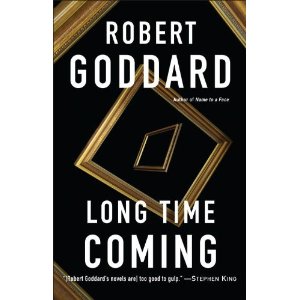 given to a mysterious figure, who keeps this info in deep dark secret until the nominees are released, and that person holds on to the personal knowledge of the winners. How someone keeps that type of secret is astounding, and marvelous, because it repeats itself year after 57 years of Edgar Awards.
given to a mysterious figure, who keeps this info in deep dark secret until the nominees are released, and that person holds on to the personal knowledge of the winners. How someone keeps that type of secret is astounding, and marvelous, because it repeats itself year after 57 years of Edgar Awards.
Ok, that’s the technical side of the stuff–but what type or genre of mystery is usually submitted and judged and win?
Hands down, hard-boiled. And hard-boiled. And suspense, pyschological suspense, and hard-boiled. Private eyes, usually male. Or serial killer books, usually male. Or suspense, usually male.
Ok, let’s put it out there. The Edgars have no time for the ‘cosy’ mystery–at least not in recent years. I have no idea why this prejudice is. I suppose, like the entertainment field, lighter, comedic work is devalued, even if comedy is always harder than straight. And, naturally, soft-boiled isn’t just made up of laugh riots or ladies that lunch. I don’t know, in all honesty, if Rex Stout would be a contender in this Edgar atmosphere–and heaven knows, Ellery Queen, would be ignored completely. Ironic, considering the two writers who made up Queen were so influential in creating a mystery community to begin with.
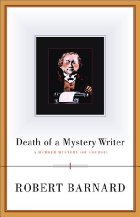 Here is a list of nominees for early 1980s
Here is a list of nominees for early 1980s
- 1980 Arthur Mailing-The Rheingold Route
- C. P. Snow–A Coat of Varnish
- Robert Barnard–Death of a Mystery Writer
- Frank Parrish–Fire in the Barley
- Ruth Rendell–Make Death Love Me.
- Snow, Barnard, Parrish–all considered soft-boiled by today’s standards. Rendell is a ‘bleak’ psychological thriller, that although would fit today’s criteria, isn’t as tough as most of today’s fare. And the winner–well, I can’t find a single synopsis of the book, which says, how little an Edgar can mean, sometimes.
- Here’s this year’s:
- The Lock Artist–Steve Hamilton (winner)–hardboiled
- I’d Know You Anywhere–Laura Lippman–not really really hard boiled, but enough to crack
- Caught-Harlan Coben–when it has a one word title-that’s the tip off of–racing suspense! Hard-boiled.
- Faithful Place-Tana French–second nomination after a win–UK hard-boiled.
- The Queen of Patpong–Timothy Hallinan–hard-boiled
- The slant is towards the rougher tougher type of book. Puzzles aren’t of interest, it seems. Polite amateur detectives aren’t taken seriously. Is it because the panelists themselves are of the hard-boiled school? Is it because there aren’t enough great traditional mysteries being written for consideration? Is it because most of the traditional mysteries written today are by women?
- Aha! Maybe. Maybe it is a gender issue. It’s been hinted. But even hard-boiled women writers have it tough in Edgarland.
The best novel’s nominees this year was nicely represented by both genders. The best first nominees–not so much–all 5 were men. Best paperback–I believe only 1 female–but a nominee has a 2 initial name, and since I’m not familiar, it may be a woman, in which case-better. 1 female out of 5 for best short story. These statistics may represent an improved year for women.
In the last ten years–one woman has gotten the Edgar for best novel.
The decade before was split, nice and even.
3 out of ten in the 80s.
To find the next non collaborative female winner–you have to go back all the way to 1963 –a few years before, one female writer won in collaboration with a male.
14 women writers out of 57, not that great an average. My opinion, of course. Hey, I’m just sayin’, you know? It is something to look at, even if found to be just the luck of the draw.
At least this year’s Grand Master (my apologies-I made the mistake of making it one word) was a mistress–mistress-ha-that’s why they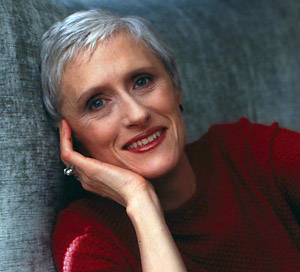 don’t change it–sounds as though the honoree is some politician’s girlfriend–Sara Paretsky–a major voice in PI novels–with a tough woman the private detective. Each year a writer with a fairly long successful career is bestowed this honor, which is a very big one within the field. Recently, more women have been given this honor, a good trend, making up for past oversights.
don’t change it–sounds as though the honoree is some politician’s girlfriend–Sara Paretsky–a major voice in PI novels–with a tough woman the private detective. Each year a writer with a fairly long successful career is bestowed this honor, which is a very big one within the field. Recently, more women have been given this honor, a good trend, making up for past oversights.
(The following sentence is NOT in reference to the Grand Master award–there are no judges for that–I wrote this poorly.)
The judges are fellow authors from the mystery world, and they have such a huge task, some resolve to put aside their own writing in order to judge for the prestigious awards. A large sacrifice to be sure.
There are three main categories: Best Novel, Best First American Novel, Best Original Paperback Novel, and The Grand Master. (To be extra clear–the MWA does not make any statement that these categories are any more important than the others–this is my opinion, and the opinion of readers and collectors–this in no way means Best Fact Crime, etc are any less worthy or excellent, only that collectors look for the adult fiction categories to be most desirable in a collectible way—and most readers tend to be adults and want to know who won the adult categories first.)
Other categories include: Best Fact Crime, Best Juvenile, Best Young Adult, Best TV Episode, Best Play (if there are enough plays to warrant the award), Best Critical Biographical, Best Short Story, and a few other honorary nods to bookstores and magazines.
Several years ago (again, I mistakenly said it was added recently), The Mary Higgins Clark Award was created, for best romantic suspense in the author’s tradition.
The physical representation for the Edgar is a bust of Edgar A. Poe (the photo I had here apparently was a fake, and I apologize to MWA and the readers for using it) I’m not certain if they changed the material from which it is made. When I saw one last, it was made of some sort of chalky plaster that broke much too easily.
After all the tedious rules and regulations and the slant or no slant involving genre and gender, how important in terms of sales is winning an Edgar? Well, as I saw with the 1980 winner, apparently not enough over the long haul–the book is OOP and likely to stay that way. However, Ellis Peter, the 1963 winner, is still selling strong, long after her death. Winning an Edgar is greatly important in terms of prestige and when the book in question has collectibility–if the print run was low, the author less known. An Edgar award can put that winner on the collectors radar, and subsequently, on the buyer’s list. And naturally, there is nothing more satisfying for anyone in any profession, than acknowledgement by fellow worker bees. And darn-it, the banquet is great fun too.
Which, I will share my personal experiences about past Edgar dinners in another post.
A FOOTNOTE: I had asked for anyone who found factual errors to correct me–which was done, and I appreciate it. The *opinions* regarding possible gender slant and category importance is mine alone and does not constitute any connection with the Edgars or MWA itself.
And just to make it clearer than clear–in wondering about gender slant-it is in no way a criticism of the judges themselves, or their very dedicated and hard work. Or a comment on the quality of work of any writer, male or female. I don’t believe my article indicated a disrespect for the judges, but to be completely cautious, I needed to express this.

The Lock Artist is a GREAT story, I thoroughly enjoyed it. A well-deserved award.
Hello there! I love Steve Hamilton’s work, and I’m sure he did deserve it. I also think Laura Lippman’s I’d Know You Anywhere was outstanding. I’ve not read a couple of the other nominees work, Tana French and Hallinan.
Bruce De Silva’s book was amazing for a first novel–he was a reporter.
I will write of my experiences at past banquets. It is interesting.